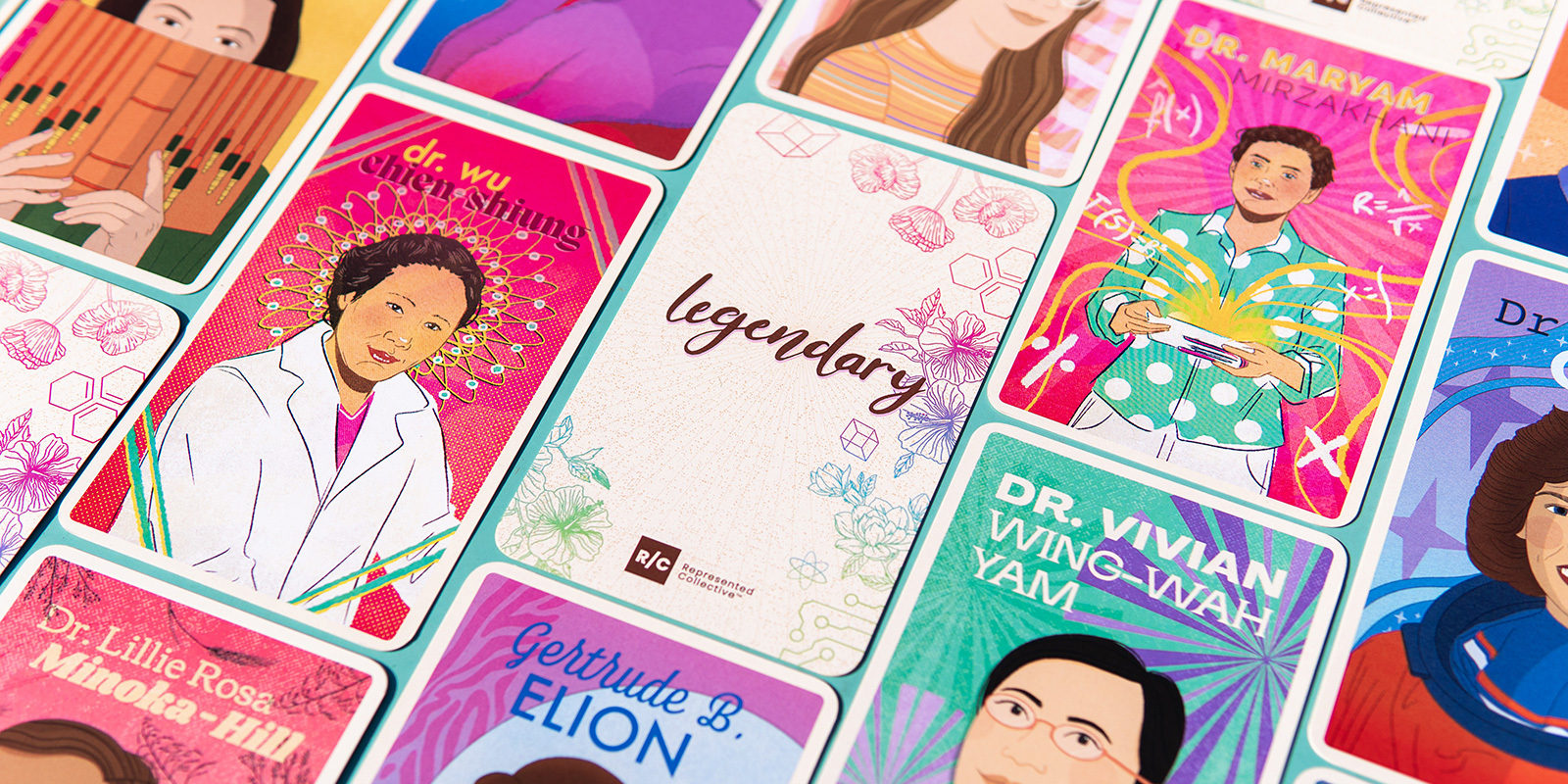March is Women’s History Month, and what better time to unveil a portrait series of truly legendary women? “Legendary” is a collection of hand-illustrated cards featuring women of color who were also pioneers in the historically white-and male-dominated fields of science, technology, engineering, and mathematics (STEM). Thanks to a UW-Madison partnership with Represented Collective, a Madison & Houston based media company that aims to increase inclusivity and accessibility in STEM, the stories of 56 women were researched and elevated, raising awareness not only of their individual contributions, but of the racism and bias that has kept many women’s accomplishments out of the limelight over the centuries. Along with the 56-card series, most of the “Legendary” portraits, along with accompanying biographies, will be on display at nine Dane County libraries for a limited time, now through April 9, for the public to enjoy.
“’Legendary’ showcases the brilliant, nuanced, yet under-recognized contributions of women (primarily Black, Indigenous and Women of Color) in STEM—women who pushed boundaries and challenged the status quo with bold thinking and innovation, reshaping the narrative of who belongs in STEM, and who we call an innovator, a leader, a legend,” says Winnie Karanja, the founder of Represented Collective, who partnered with UW-Madison through the Humanities Education for Anti-Racism Literacy in the Sciences and Medicine (HEAL) Project, supported by the Andrew W. Mellon Foundation.
Each of the 56 cards in the series focuses on women in STEM whose accomplishments were significant but may have been overlooked or muted. Bold, colorful illustrations draw viewers into the stories of each woman. One example: Alice Ball, a Black chemist who developed the first successful treatment for those suffering from leprosy in the early 1900s; however for 90 years, a man in her lab took credit for her work. The “Legendary” illustrators were all women of color, and included a UW-Madison alum, Jessalyn Mailoa, who earned degrees in Art and Psychology at UW-Madison in 2021. The short bios accompanying each portrait were written by UW-Madison humanities PhD student Sarah Gamalinda, who holds a public humanities fellowship with Represented Collective through the UW-Madison Center for the Humanities.

The illustrated card series is offered for sale to companies, libraries, schools – “those who wish to illuminate the history of women in STEM fields,” according to Karanja.
As founder and CEO of Represented Collective, Karanja (named one of Forbes’ 30 Under 30 in 2020) says that her personal and professional experiences in the STEM field shape her desire to have people expand their understanding of the origins of technologies and innovation.
“I want people to recognize the prominent roles women and people of color have at the forefront of discovery,” she says. “The Legendary collection addresses a lack of awareness and representations of women, especially women of color, in STEM in an accessible way. Legendary brings the humanities, the arts and the sciences together in an initiative to celebrate women in STEM in our past and present.”
HEAL is a collaboratively led project that seeks to provide models and examples of transformative higher education by drawing on humanities research to advance anti-racist practices and pedagogies in science, technology, engineering, mathematics, and medicine (STEMM). Beginning with an acknowledgement of pervasive systemic racism, HEAL’s aim is to center the educational experiences of Black, Native, Indigenous and other students of color to build more accurate narratives about histories of racism in the sciences and medicine, allowing for better understanding of persistent underrepresentation and to develop educational tools for building a more equitable university and society.
Co-PIs from the College of Letters & Science include Christy Clark-Pujara, a professor of history in the Department of Afro-American Studies, Elizabeth Hennessy, a professor of history and environmental studies, Erika Marin-Spiotta, a professor of geography, and Cheryl Bauer-Armstrong, who directs the Earth Partnership, Indigenous Arts & Science program.
More information about “Legendary” is here.
For media: Winnie Karanja, CEO of Represented Collective hello@representedcollective.com
